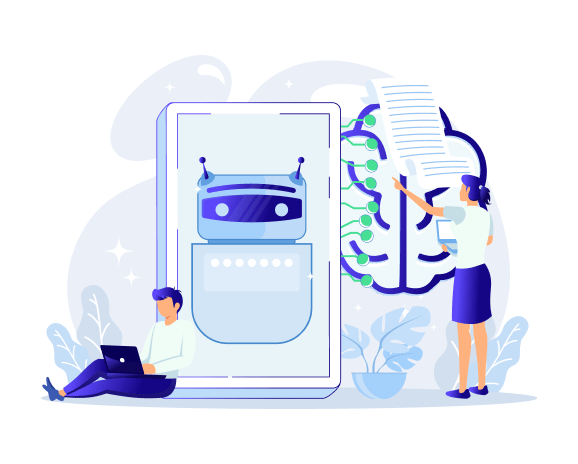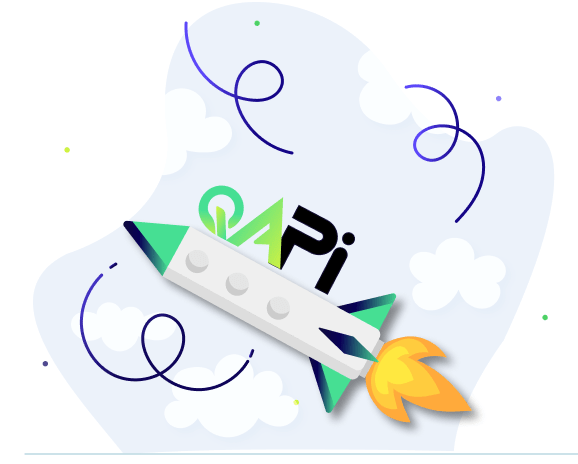AI Testing for Mobile Apps: Key Considerations and Benefits

The exponential use of AI in mobile testing is driven by the need to meet the demand for faster release cycles of increasingly complex mobile applications. AI has also become a key facilitator of automated mobile testing trends, making testing faster and more efficient and ensuring different stakeholders can now contribute meaningfully to testing and help build a successful mobile app.
Rise of AI in Mobile Testing
According to Global Market Insights, the automated mobile testing market earned US$6 billion in revenue in 2022. The findings of Future Market Insights say that the AI-enabled testing tools market will be valued at US$426.1 million in 2023. By 2033, this figure will touch US$ 2030.75 million. These figures indicate that organizations across the globe see value in leveraging artificial intelligence in software testing or mobile testing to deliver high-quality native mobile experiences, irrespective of the use case.
The raison d’être for the accelerated adoption of AI-backed mobile automation testing tools is the complexity of mobile testing. Mobile testers must test for mobile devices with various features, functionalities, processors, power consumption needs, etc. Such device segmentation creates testing challenges as testers must build test scripts based on numerous user behavior patterns, real-world usage scenarios, application behavior, app usage, historical bug reports, etc.
AI helps automate this long, drawn-out process replete with challenges, by creating relevant, effective, and intelligent test scenarios; by analyzing vast amounts of structured and unstructured data, AI development software can build test scripts for every scenario, thus simplifying the life of the testing team.
The rapid adoption of AI in testing is also an outcome of a growing problem in the tech world, the skills gap; the industry has also been a long sufferer of a panic of resignations. Together this has resulted in a situation wherein skilled experts across functions, including testing, are in short supply, resulting in understaffing of this department and/or organizations compromising with the testing process.
But there is a silver lining in the dark cloud.
The emergence of automated mobile testing and AI has ensured that critical testing actions can be automated. Leveraging AI in testing frees up testers’ time, enhances productivity with a leaner team, and improves the efficiency and accuracy of the overall mobile testing process. There is also a rapid evolution in the AI space, further driving efficiencies. While still in its nascent stages, companies have begun experimenting with generative AI in testing.
Generative AI can help create data and test cases on the fly by leveraging its data synthesizing and text production capabilities. AI can ensure anyone can execute these tests, irrespective of their testing knowledge or skill sets, and benefit from granular test reports. The testing tool integrated with generative AI can also help zero in on the defects and deliver actionable insights on debugging problematic code or take action on the tester’s behalf.
Features that Help Mobile Testing
Organizations can leverage an AI-empowered testing platform that delivers a range of features. Some of these AI-enabled features include:
Self-Healing:
The premise behind self-healing tests is that the components of any app are dynamic and can change if the app is updated or modified in any way. In such cases, the test script that worked earlier can fail, which calls for the test to be rebuilt and executed again. AI development software can automatically identify test errors due to dynamic properties, suggest remedial measures, or even update the test script, thus preventing test flakiness and brittleness.
Imagine a scenario wherein a test fails for a specific functionality, and upon problem identification, you find that developers changed the ID value of an element e.g., the login button. Without AI, you will need to go through your scripts, update the locator values of that button, or ask the development team to revert to the old ID. With the right AI tool, you can save time and maintenance costs as the tool monitors and makes changes to scripts when needed.
Qyrus’ Healer, an AI Tool, makes testing faster, smarter, and much easier by mitigating the need to modify and maintain test scripts. AI-driven test script correction means errors are rectified automatically, saving effort and valuable resources.
Improved Test Coverage:
Testers need to analyze and build scripts for a significant number of user journeys for mobile apps. With AI-enabled testing, users can improve test coverage by visually analyzing the mobile application’s user journey and automatically building a test script based on the activity map. AI testing ensures they do not miss a critical case during the test build process.
As a tester and developer, you must be able to get granular visibility into the numerous and diverse user journeys that can take place on the app. More importantly, there might be navigation flows that you might have yet to think about. This helps build test cases and scenarios that might have been overlooked in initial test planning, thus making the mobile testing process more comprehensive.
Rover is Qyrus’ AI-enabled reinforcement learning bot that makes its way through a mobile app and records its journey. But it does not stop there. While traversing the app, it can build and export test scripts on the Qyrus platform, thus making it a comprehensive mobile testing tool. While Rover helps testers build test cases for many user journeys, developers can delve deeper into performance data to identify areas of improvement. Overall, it facilitates the building of a more robust app, that works optimally for all kinds of user journeys.
Test Intelligence:
One of the key benefits of AI is that it can analyze the data produced by mobile app testing services quickly and comprehensively. It can detect and categorize errors, and even identify false negatives and true positives across numerous test cases. As can be imagined, this goes a long way in improving the productivity of testers and QAs and accelerates release cycles.
Move to AI-Powered Mobile Testing Approach
Qyrus is a codeless, automated, AI and ML-driven mobile testing solution that is purpose-built to improve mobile application quality and, simultaneously, improve testing efficiency and speed up time to market. Users can automatically identify and fix test scripts, test mobile applications comprehensively, and get meaningful performance insights for test data. This results in better-quality apps.
AI application in mobile testing is the way forward, and it is imperative to adopt AI in mobile testing to make it more competitive and attuned to the demands of a modern mobile application and its development lifecycle.





